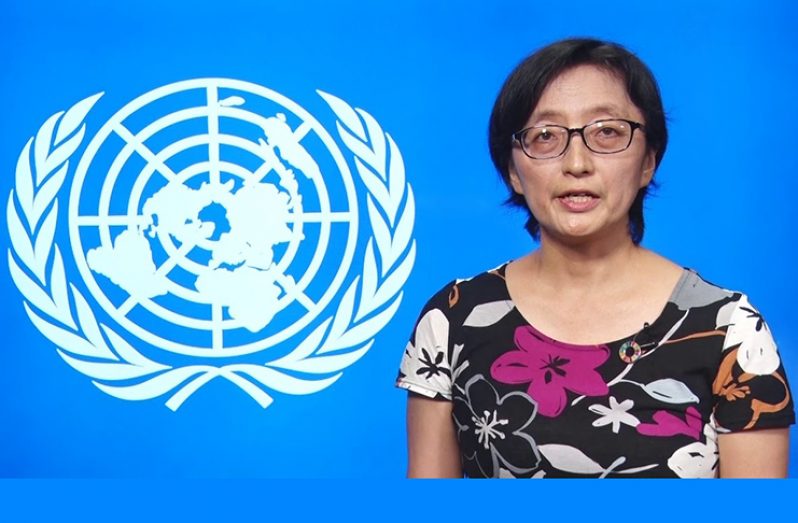— UN rep. suggests work-from-home, limiting movements to essential errands
UNITED Nations (UN) resident coordinator, Mikiko Tanaka has called on the government to introduce urgently, more stringent measures to stem COVID-19.
In a statement on Friday, Tanaka said these measures include working from home in public and private institutions except for essential services, limiting people’s movements to essential errands.
“The UN System stands ready to provide advice and assistance in elaborating and implementing a national response plan that covers the health sector and other socio-economic sectors to help citizens cope with the impact of the COVID-19 response and in particular to protect the most vulnerable. This will build on the critical ongoing support from PAHO/WHO and other UN agencies,” the UN resident coordinator said.
The novel coronavirus (COVID-19) pandemic rages worldwide with 465,915 confirmed cases and 21,031 deaths – at an unprecedented scale and speed.
Guyana, Tanaka said, is not insulated from the pandemic and even with the five cases and one death, there is no room for complacency.
“We have seen rapid acceleration from low numbers in many countries. Prevention is critical and urgent,” she said.
The Ministry of Public Health and national authorities initiated preventive measures in late January, starting with health and border quarantine procedures.
With the confirmation of the first case on March 11, health response capacities have been enhanced and other measures were taken including the suspension of international commercial flights, temporary closure of schools, border closures and public information and advisories for hygiene and social distancing.
The private sector and religious community have started to take some voluntary measures to protect their staff and congregation and to help healthcare workers and citizens. Linden and New Amsterdam have taken the initiative to enforce lockdown measures to limit social gathering and movements.
“We commend the health workers who are working around the clock in a high-stress and high-risk environment to respond to the outbreak. We have to protect the physical and mental health of these health workers and to keep the caseload manageable by stemming the spread. Prevention is critical.”
“Social gatherings and movements of people are the biggest risk in the spread of COVID-19. We are very concerned that social gatherings are continuing despite public advisories discouraging this for some time,” the statement from the diplomat concluded.



.jpg)










